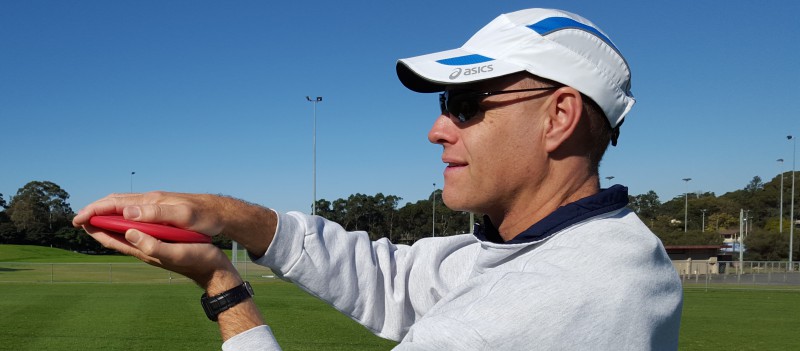How to Send Children a Message About Process and Growth
Have you ever struggled to know what to say to a child following a sporting performance?
What should you say if they have done well?
What if they tried hard but performed below expectations?
What if they come off the sporting arena acting boastful?
It’s often hard to know what is best to say.
Imagine that as a coach or parent, you had a script to apply to a range of post-performance situations.
Some guidance can be found in the book “Mindset: Changing the Way You Think To Fulfil Your Potential” by Dr Carol S. Dweck.
In the book Dr Dweck suggests that our reactions to our children’s performance can influence them to develop either a “growth” or a “fixed” mindset.
Growth vs Fixed Mindset
Based on the information featured in a diagram by Nigel Holmes on P. 263 of the book:
Growth Mindset
Someone with a growth mindset believes that ability can be developed. It leads to a desire to learn and therefore a tendency to:
- Embrace challenges
- Persist in the face of setbacks
- See effort as the path to mastery
- Learn from criticism
- Find lessons and inspiration in the success of others
As a result people with a growth mindset can reach ever-higher levels of achievement.
Fixed Mindset
Someone with a fixed mindset believes that ability is static. It leads to a desire to look good and therefore a tendency to:
- Avoid challenges
- Give up easily
- See effort as fruitless
- Ignore useful negative feedback
- Feel frustrated by the success of others
As a result people with a fixed mindset plateau early and achieve less than their full potential.
How Your Feedback Can Affect a Child’s Mindset
The way we react to a child’s performance can influence their mindset.
For example, Dr Dweck cautions us about making statements that tie a child’s performance to ability or “talent” such as:
“Wow you did so well! You are such a natural athlete!”
“What a performance! Are you the next Usain Bolt or what?”
“You are such a great athlete. You got a gold medal medal without even trying!”
She says that praising a child’s intelligence, for example, “. . . harms their motivation and it harms their performance.” Such praise gives them only a temporary boost. “The minute they hit a snag, their confidence goes out the window and their motivation hits rock bottom. If success means they’re smart, then failure means they are dumb”.
This is seen a lot in children who achieve early competitive sporting success, which is often the result of early maturation or being an older athlete within their age group. They get used to being told how great they are and come to believe that it is a result of their “talent”. When their peers eventually catch up in size and strength, the child’s ego receives a huge battering and they become demotivated and disinterested. Much of this can be traced back to adult reactions and comments about the child’s early performances.
What to Say Following a Child’s Performance
The following are examples of scripts that could be used following a child’s sports performance to help them develop a growth mindset and avoid the pitfalls of a fixed mindset. They have each been adapted from Dweck’s book to be relevant to a sporting context.
To the child has tried hard and performed well:
“You prepared well and your improvement shows it.”
“Your preparation for this event was long and involved. I really admire the way you stuck with it.”
“Your performance had so many positives. Tell me about them.”
“I love watching you compete hard. How do you feel when you are out there?”
The first two statements focus on effort and persistence. The second two statements invite the child to assess themselves, allowing them to tell you how excited they are, focus on how they achieved the result and reinforce what will help them succeed again.
To the child who has worked hard but hasn’t done well:
“I liked the effort you put in, but let’s work together some more and figure out where you need to improve.”
“We all improve at different rates. It may take more time for you to get the performance you want, but if you keep at it like this you will.”
“Everyone learns and improves in a different way. Let’s keep trying to find the way that works for you.”
All of the above feedback is positive and focuses on learning, persistence and trying new things.
To the child who hasn’t put in the effort and has under-performed:
“I understand it’s so disappointing to have your hopes up and not do as well as you wanted. But you know you haven’t really earned it yet. If this is something that you really want, you are really going to have to work for it.”
This response doesn’t withhold the truth and also teaches the athlete how to learn from failures and do what it takes to succeed in the future.
To the child who starts talking about having performed better than other children:
To the child who starts talking about how a sporting performance was so easy for them:
“Well that’s too bad, you are not learning. Can you find something harder to do so you can learn more?”
“That’s a shame that was so easy. Let’s do something you can really learn from!”
When a child boasts about being a champion:
“Champions are the people who work the hardest. You can become a champion. Tomorrow tell me something that you have done to become a champion.”
Summary
It appears that when talking with children following a sports performance it is best to link the performance to things such as effort, learning and growth, rather than the child’s “talent” or “natural ability”. It could be the difference between the child developing a growth mindset or a fixed mindset, and ultimately the difference in whether or not they reach their ultimate potential.
Further reading
Articles:
Can Praise Be Harmful to Young Athletes?
How To Talk With Kids About Their Sports Performance
If this post helped you please take a moment to help others by sharing it on social media. If you want to learn more I encourage you to leave questions and comments or contact me directly.
Darren Wensor is a sports development professional, coach educator, specialist coach of young athletes, and founder of the blog coachingyoungathletes.com. Learn more about him here and connect with him on Twitter, Facebook, Linkedin, or via email. Check out Coaching Young Athletes on YouTube, the Coaching Young Athletes podcast, and the Coaching Young Athletes E-Book Series.

